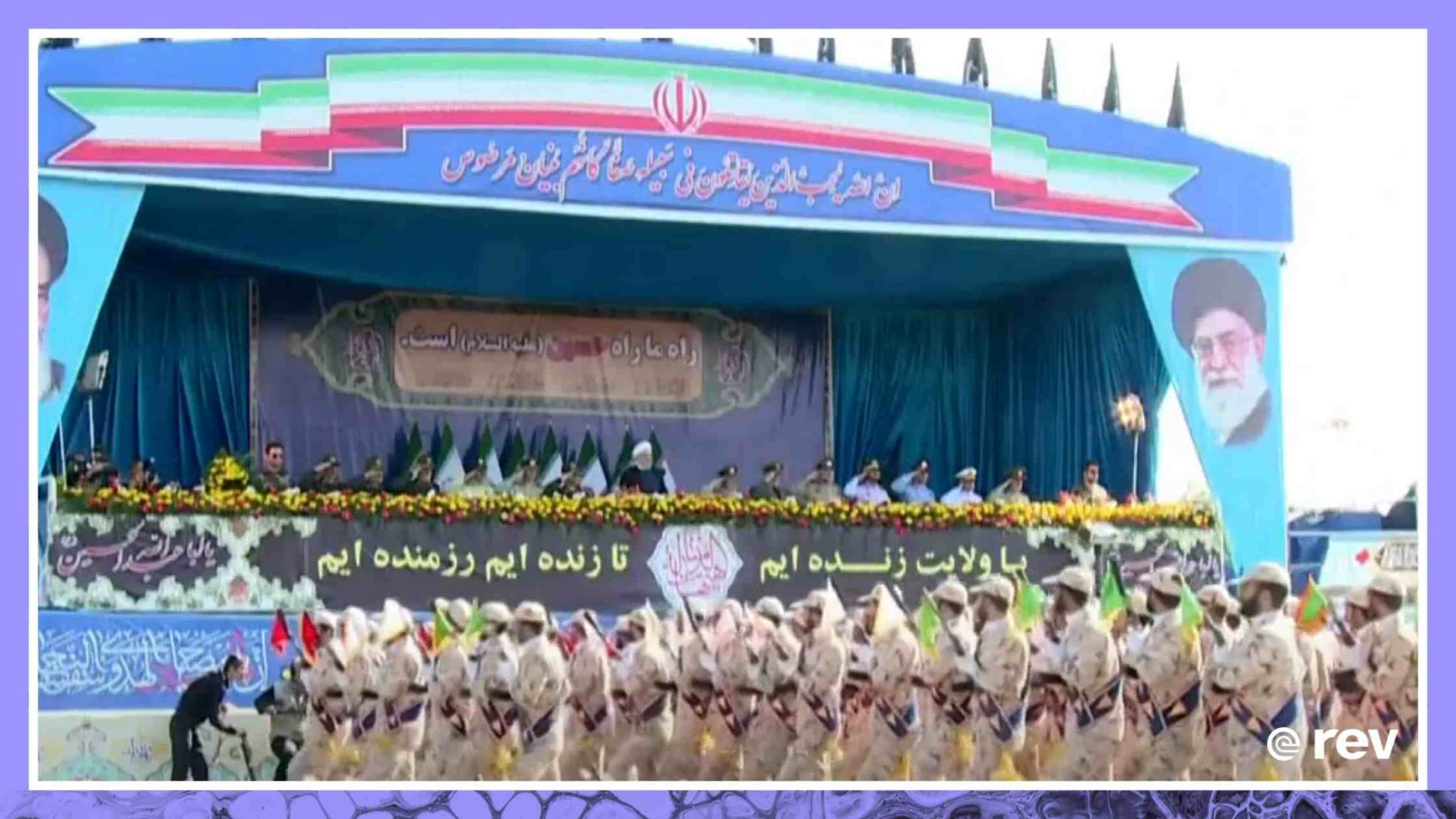Aug 24, 2022
US confirms airstrikes against Iran-linked targets in Syria Transcript

A US army spokesman confirmed that President Biden ordered airstrikes against Iran-linked targets in Syria, even as the US weighs its response to the newly-drafted nuclear deal agreement. Read the transcript here.
Transcribe Your Own Content
Try Rev and save time transcribing, captioning, and subtitling.
Speaker 1: (00:00)
Well, the United States military says it carried out airstrikes in Syria against facilities used by groups affiliated with Iran’s Revolutionary Guard Corp. The strikes come even as the US aims to respond to a draft agreement proposed by the European Union that would bring back the 2015 Nuclear Deal with Iran. The military central command said in his statement that such strikes were aimed at protecting US forces from an attack by Iran-backed groups and that the president himself gave the direction for these strikes.
Speaker 1: (00:37)
There was no mention whether there were any casualties or whether the strikes were carried out by manned or unmanned aircrafts, but it’s not the first time the US warplanes have struck Iran-backed forces in Iraq and Syria. Last year, they hit operational and weapons storage facilities at two locations in Syria and one in Iraq. Let’s bring in Dr. Jacques Neriah, the former deputy head of assessment for Israeli Military Intelligence, and he joins me live in studio. Good morning to you. The United States conducting these airstrikes on Iran-backed posts, does it mean that they saw some sort of imminent threat coming their way?
Dr. Jacques Neriah: (01:19)
Well, I can imagine that they had intelligence concerning an imminent attack on American bases. I mean, we saw that the American bases are the target of those militias in Baghdad and other places. On the other hand, we see that the American military is very active in the area. We saw them twice hitting the targets of Daesh and killing the chief operatives of Daesh and now they’ve reacted against an intention to hit American bases. And I think that this is an ongoing effort by the Americans. It doesn’t mean any change in the attitude towards negotiating with the Iranians.
Speaker 1: (02:02)
And that is a good lead into my next question. Can we expect to see any sort of stall from the Iranian side because of these strikes by the United States?
Dr. Jacques Neriah: (02:11)
No, I don’t think so. I think that the Iranians understand very much that the agreement on the nuclear is much more important than a few skirmishes in Iraq or Syria. And I think that the main effort is to reach an agreement because the Iranians are about to receive, if this agreement is concluded, billions and billions of dollars, and that will just assist and help reconstruct Iran and renovate its economy and give the Iranian Ayatollahs a tool for more influence in Lebanon, Syria, Iraq, and Yemen.
Speaker 1: (02:49)
Let’s move on to the nuclear deal now. We know that there’s a draft resolution by the European Union that the United States is sent to respond to. But to head on also saying that they’re willing to give up a lot of concessions. Is this something Western allies could have anticipated?
Dr. Jacques Neriah: (03:08)
Well, we should be very careful because a lot of information is spread and this is basically disinformation rather than information. I think that we have to just sit and wait and see if the Americans will accept the last positions presented by the Iranians. I think, basically, the United States has in mind the price of the gas at the gas station rather than Israel. I mean, full security. So, this is more important in November elections and for the American administration rather, and they are very keen in reaching an agreement with Iran because they think that this is essential in their politics. As Israelis, we look at the situation with our own eyes and our perspective, but we forget that we are not the ones who just imposed or instructed the positions. After all, the United States is the superpower, and we are one power, but in the middle east.
Speaker 1: (04:07)
And what about Israel’s reaction to a potential nuclear deal? It’s been said that the previous position has been, they would rather have no deal than a deal that is bad in their opinion, but what in Israel’s opinion is a bad deal?
Dr. Jacques Neriah: (04:22)
Well, a bad deal is a deal that will allow Iran to continue its effort to reach a nuclear bomb. I mean, this is within a few months, but the most important is to weaponize the nuclear device, and the weaponizing is putting it in a missile or projections. And this would take some time, maybe a year or two, but this would mean definitely a danger and threat for Israel. We saw a decade ago that Israel was ready to prepare itself to hit targets in Iran, and at the last moment, they decided not to do. We are fighting here a trench warfare, so we are just living trench after trench and, when we reach the last trench, then we’ll have no choice but to hit.
Speaker 1: (05:14)
We’ll certainly see what the outcome is of all of this and from the negotiations in Vienna. Dr. Jacques Neriah, the former deputy head of assessment for the Israeli Military Intelligence. Thank you.
Dr. Jacques Neriah: (05:24)
Thank you.
Transcribe Your Own Content
Try Rev and save time transcribing, captioning, and subtitling.






